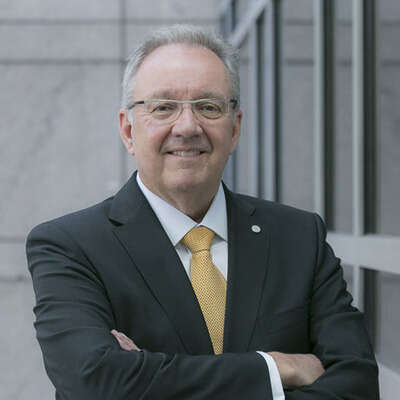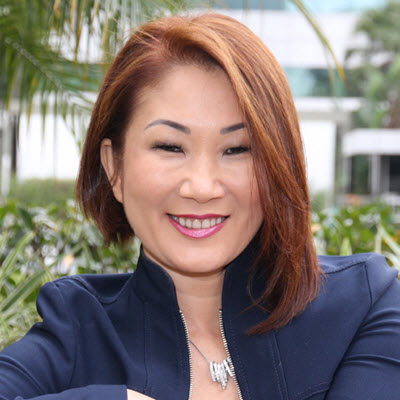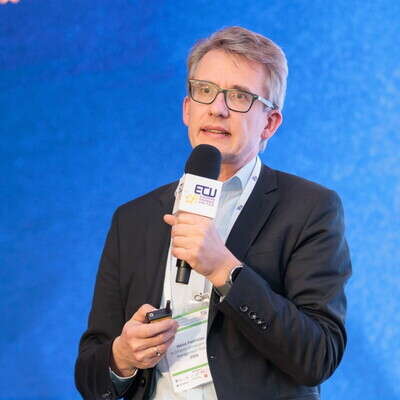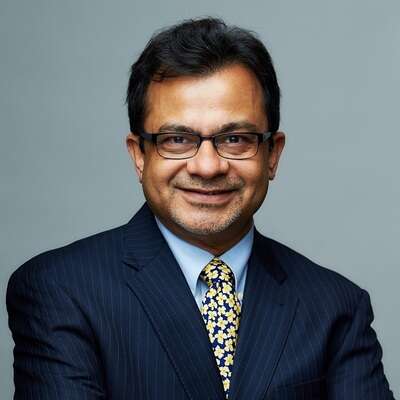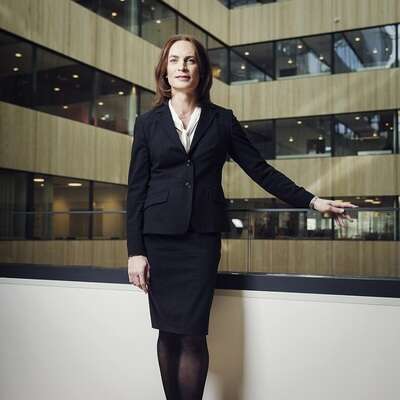The president of Bayer Brazil shares his views on how to keep a workforce innovative, socially aware and ahead of the competition.
Boyden’s Leadership Series presents discussions with business and thought leaders from organisations across the globe. The series focuses on topical issues that offer executives, political leaders and the media insight into current trends in business and talent management in the global marketplace.
This issue features Theo van der Loo, President of Bayer Brazil. In the interview, he shares insights on the importance of staying focused to achieve the best financial results, as well as the key characteristics he believes keep a workforce innovative, socially aware, and most importantly, ahead of the competition.
Van der Loo has been President and Country Speaker for Bayer in Brazil since 2011. He is a native Brazilian and has lived in Europe, where he earned his bachelor’s degree in business, followed by an MBA in the United States. He returned to Brazil in 1980, starting as a management trainee in the pharmaceutical industry. He then joined Schering AG in Brazil as Marketing Director, while working across Berlin, Mexico City and Madrid. When Bayer acquired Schering, van der Loo became responsible for the Bayer HealthCare Division, moving ultimately into his current role.
During his career, he has been elected Chairman of the Board of Interfarma (Brazilian Research-Based Pharmaceutical Manufacturers Association) four times. He is also currently a Board Director at Sindusfarma (Industry Syndicate of Pharmaceutical Products in the State of São Paulo) and the German Chamber of Commerce - São Paulo, as well as a member of the Advisory Board at ETCO.
Boyden: Could you tell us about Bayer Brazil, and how it fits into the global organisation as a whole?
Van der Loo: Bayer Brazil is a significant business with around 4,000 employees, and is in fact, in terms of sales, the fifth most important country for Bayer on a global basis. Brazil is one of the major agricultural countries in the world, and consequently our Crop Science division accounts, by far, for most of our sales here in Brazil.
Nevertheless, across our pharmaceuticals, consumer health and animal health divisions, Brazil is also seen as a key market due to its large population and global economic importance. Bayer has been in Brazil for
121 years, so we are well known, and we have always enjoyed a strong relationship with the local stakeholders, Germany, and all of Bayer’s other global operations. We have a very well-known slogan in Brazil, which is 95 years old: “Se é Bayer, é bom.” (”If it’s Bayer, it’s good.”)
Boyden: How is Bayer’s structure different from other life sciences companies?
Van der Loo: One of Bayer’s big differentiators is that we are currently the only global life science company dedicated to human life, animal life and plant life or agriculture. This makes us stronger, because we are fully dedicated to making life better for people worldwide. This is reflected in our global slogan, “Science for a Better Life.”
I started in Brazil in 1980 as a trainee, working as the assistant to the general manager. It was during this time that I learned how essential good people skills are to achieve positive business outcomes. My role involved lots of interaction with my manager’s direct reports to get tasks done, though as a trainee, I had very limited authority. Being able to establish good personal and working relationships with everybody has absolutely been fundamental to my success.
I later moved into marketing, where the salesforce became my major “client”, because as a product manager, I needed them to be successful in implementing our strategy and related action plans. Building trust and staying humble are paramount when dealing with every type of person that makes up the demographic of any company. As I progressed further, I realised that while hitting targets and maintaining good relationships with senior management was the priority, to be really successful in an organisation you need good working relationships with people at all levels, across multiple disciplines.
For me, though, the most important thing has been to stay focused on learning. You must learn from every experience, and this is something I’ve always tried to do. Asking for feedback from colleagues has been very helpful and keeps me motivated to improve. Over the years, I made many mental lists of things that I would have done differently. I would also try to read as much as possible, particularly if there was an area I didn’t feel completely comfortable with, to help me prepare for the next step.
Boyden: What is the current operating environment like for Bayer in Brazil, and how has this evolved over the years given recent economic cycles?
Van der Loo: In our current political and economic environment we’re experiencing unprecedented change. Obviously, Brazil has often experienced economic ups and downs, but despite this I would say that during the most recent years, Bayer has strengthened its overall position in the market while becoming an employer of choice. For example, to fill the annual vacancies of 200 apprentices five years ago, we received between 8,000 and 10,000 applications. Last year we had over 76,000, which is a very good sign. It’s always been important to us to implement measures to attract young talent.
Exposure in the press, social and digital media has also helped us with this mission. Our employees are truly motivated. Since we began participating in career surveys, Bayer has been honoured as one of VOCÊ magazine’s “Best Companies to Work For” five times in a row. We were also recognized by VOCÊ as one of the “Best Companies to Start Your Career” three times in a row.
Boyden: Which areas do you think present the most opportunity for the company?
Van der Loo: For Brazil today, it’s crop science, because we are one of the biggest agro countries in the world. Our country has a very strong differentiator from the U.S., which is that we can do two harvests a year because of the climate. This also makes Brazil very important in the global arena for crop science.
Our innovative pipeline in the healthcare field is another area of growth opportunity. Added to this, Brazil is also one of the top economies in the world. We have the fifth-largest population, with a lot of very young people. Brazil will always be a major country, and I think all divisions of Bayer can benefit from the growth that Brazil will continue to have in the future. There has been some turbulence – and in Brazil it happens – but it’s cyclical and the economy will always come out and then grow again. This is why we must focus our strategies on the medium and long term.
Boyden: Bayer has a huge focus on promoting innovation and providing benefits to society. Could you tell us more about this?
Van der Loo: There is innovation everywhere at Bayer, ranging from our products to our internal practices, as well as the work we do to support new and exciting digital health start-ups. Within crop science, digital farming is transformational. For example, by using satellites and drones, you can see where plant diseases are spreading, meaning you can react faster and treat the specific area instead of spraying the entire crop as a preventative measure – optimizing the use of agrochemicals.
Alongside our product innovation, as a culture we try to stay innovative and share experiences through our internal portal, “We Solve”. Employees from anywhere around the world can post problems, challenges or questions, and anyone at Bayer can then propose solutions. We are also reaching outside of Bayer for innovation, through our Grants4Apps Accelerator (grants4apps.com), which is designed to help people develop new and very innovative projects.
Boyden: Have your leadership skills come naturally to you, or is this something you learned over time?
Van der Loo: I guess it´s a little bit of both. I’ve always liked to be involved in leadership activities. I was in leadership positions in college, and I genuinely feel motivated by people. Over years of experience, I’ve naturally strengthened my emotional intelligence, and I’ve learned to be patient, resilient and intuitive. I also think it’s important not to transfer any frustrations onto employees, to always support people even when they make mistakes, and to keep personal concerns separate.
As a leader, delivering strong financial performance is clearly imperative, but environmental and social considerations are increasingly important. A diverse workforce is also key to achieving this. To give you an example, we have an LGBT program at Bayer called “BLEND”, which is very active across the firm globally. In Brazil we are also dedicated to improving ethnic diversity, as more than 50% of Brazil’s population has African roots. This is not always reflected across Brazilian companies, so there is still some work to be done.
Boyden: As you mentioned, Bayer is a diverse business operating in lots of different areas. When you’re looking at talent, what attributes do you most value?
Van der Loo: In addition to the technical and professional competencies needed for the specific role, people skills are always important. You also need people who are open to innovation, can adapt to new challenges, and are dedicated to serving clients. Trust and collaboration are essential, particularly in matrix organisations like Bayer.
Employees should always be humble and respectful of others, and I think people in management positions in particular should be open to feedback and suggestions from colleagues. I also highly value candidates who are actively involved in other areas like volunteer work. We must also bear in mind that the younger generation thinks differently. It´s important that we adapt to this by being more flexible and move away from any form of prejudice. Equally, I would say that the biggest deal-breaker would be if you cannot trust a person, or if they refuse to collaborate with others. Similarly, a bad reputation among former colleagues would also be a concern, as well as negative results from background checks.
Boyden: Over your nearly 30-year career, what would you say has been the single best decision that you’ve made?
Van der Loo: The most important thing I’ve done throughout my career is maintain focus. I’ve always focused on aggressively growing businesses that are the most profitable, and have looked for areas where the competition is weaker, meaning that results can be delivered faster.
For example, early in my career I noticed there was no recognised market leader in the women’s healthcare arena. Our company had the best product portfolio in this segment. The strategy was to start actively behaving as the leader. I presented this concept to the management and received financial support to grow the business. The growth was significant.
Along with improving our market lead in women’s healthcare, we delivered social programs in schools, such as sexual education to help avoid pregnancies amongst teenagers. This was something that was very meaningful for me, because it was important to help ensure that women were using our products correctly, and equip them with the right information to make informed choices. The ability to combine important social work for Brazil, while bringing benefits to the business, has given me the most satisfaction.
For further insight into the rise of social media and related trends in talent development, see the latest edition of The Boyden View.
The views and opinions expressed here do not necessarily represent the views of Boyden; only those of Theo Van der Loo.

